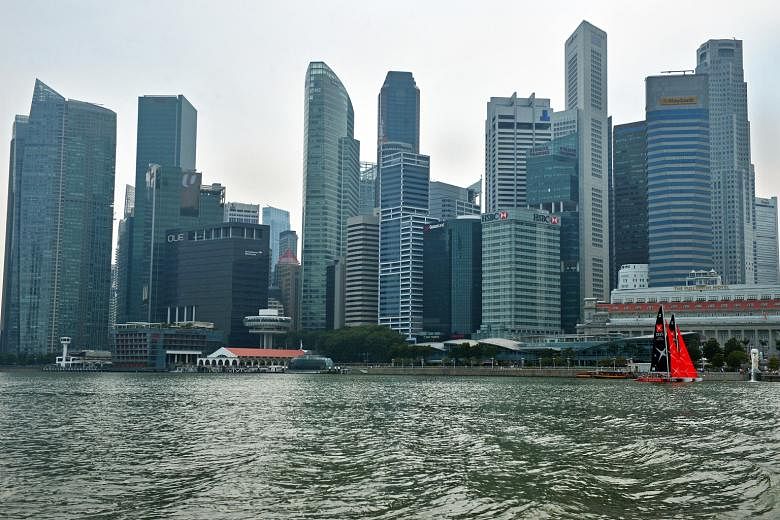HONG KONG • Singapore companies, highly exposed to slowing global trade and a lacklustre commodity market, face a financing scramble next year as more than US$12 billion (S$16.7 billion) of their bonds fall due and banks grow wary of lending to the resources sector.
That could trigger more blood-letting in a market that has already seen some high-profile corporate defaults, such as oil services firm Swiber Holdings, which hit the skids in July and went into judicial management last month.
Between now and the end of next year, according to Reuters data, US$12.4 billion of bonds fall due, but corporate balance sheets in the city state are looking strained.
A Reuters study of 228 non-financial companies' half-year earnings shows that 74 had net debt more than five times their core profit, and more than a third of that group were at least twice that level. "We had not seen Singapore-dollar corporate defaults since 2009, but suddenly we see a pickup in defaults in 2015-2016. This is a warning sign about a refinancing confidence crisis across many sectors, not just commodity-related ones," said Mr Raymond Chia, head of credit research for Asia ex-Japan at Schroders Investment Management.
The structure of Singapore's capital markets has left them particularly vulnerable as global trade cools and Chinese growth slows.
In 2014, private banks accounted for almost half of investments in Singapore-dollar corporate debt, a central bank report said last year. Their participation has helped encourage smaller issues that are not assessed by credit rating agencies and yet are targeted at private wealth investors, analysts say.
"Their bond issues are also mostly unrated, so the layer of scrutiny provided by rating agencies is missing. Many of these deals were mispriced: They priced like investment grade even though they had high-yield profiles," said Mr Harsh Agarwal, the head of Asia credit research at Deutsche Bank.
That is now changing - at considerable cost for firms.
And banks, under pressure to increase provisions for bad loans, are pulling back from indebted sectors like real estate, commodities and oil and gas, which dominate Singapore's outstanding $53 billion of local-currency corporate bonds.
Non-performing loans have risen at all Singapore's three banks in the latest quarterly results. "In the absence of further bank support, refinancing this debt may prove difficult, potentially leading to more defaults over the next year," said Mr Devinda Paranathanthri at UBS Wealth Management, which estimates that $18 billion of local currency-denominated bonds are coming due over the next 18 months.
There has also been an increase in borrowers asking bond holders to cut them slack. "It will continue to be busy, but the question is whether loosening covenants will be adequate to give these companies the lifeline that they need," said Mr Kevin Wong, Singapore-based partner with law firm Linklaters.
"There is a risk these consent solicitations may lead to full-blown debt restructurings."
REUTERS

